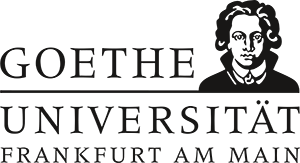Project group interdisciplinary network meeting in Braunschweig
In early December, the AIWG project group ‘Falsafa for Schools’ that aims to incorporate Islamic-influenced philosophy in German school curricula organised an interdisciplinary network meeting in Braunschweig.
Project researchers presented preliminary results of their work on how to implement Islamic philosophy in school classes and discussed these with colleagues from Islamic theology and the neighbouring disciplines of Catholic theology, philosophy, Islamic studies, and Jewish studies. Experts from different disciplines suggested philosophical texts and bodies of knowledge from the Islamicate World for use in religion, philosophy, and ethics lessons. In addition to the academic discussion, the meeting’s focus was on preparing form and content of teaching material for specific target groups. Here, the project received support from didacticians and textbook experts. With regard to pupils, target group-specific primarily means age-appropriate. The material was therefore thematically broad: From the philosopher Farabi to friendship duties and fables.
The AIWG project group ‘Falsafa for Schools’ (Arabic falsafa: philosophy) seeks to integrate Islamicate philosophy more firmly in teacher training and educational material. Despite its rich historical and contemporary perspectives on values such as reason, science, democracy, and gender equality, philosophical thought from the Islamicate world remains underrepresentedin school curricula and textbooks. Instead, public debate, teaching and education are primarily dominated by radical Islamic political and theological positions on controversial issues. In contrast to this perception, Islamic-influenced philosophy in the 9th to 12th centuries made a transfer from ancient to modern philosophy. With new methods and insights, philosophers such as Avicenna and Maimonides made significant contributions to the development of philosophy in Europe.
Using impulses from Islamic-influenced philosophy, the project aims to exemplify how a more differentiated image of Islam and Europe, and in particular of the diversity of Muslims, can find its way into ethics, philosophy, and Islamic religious education. An essential component of this work is the interdisciplinary exchange with academics from Arabic or Islamic philosophy, philosophy, Islamic theology, and educational research.
The sub-project at the Leibniz Institute for Educational Media|Georg Eckert Institute Braunschweig dedicates itself to the educational space of schools through the creation of materials for the classroom, while the sub-project in Hamburg implements Islamic philosophy directly in teacher training through the conception and realisation of a course and the creation of a subject-specific course reader.
The next network meeting will take place in Hamburg during the first half of 2025.
Further information on the AIWG project group is available on the AIWG website at: https://aiwg.de/falsafa_in_schools/






